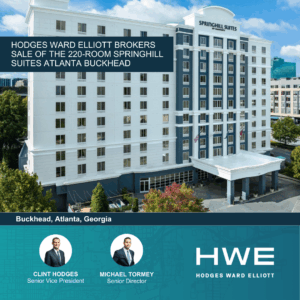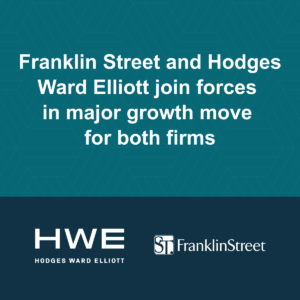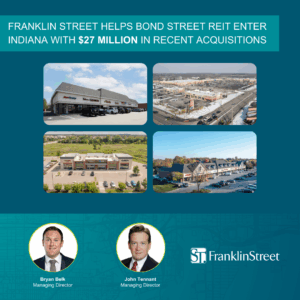With the presidential election approaching and a potential interest rate increase looming, the eyes of the real estate community are focused on the Federal Reserve.
For several months now, Fed Chair Janet Yellen has indicated that a rate hike is imminent. She commented as recently as August that strong job growth in the summer months had strengthened the case for a rate increase. Jobs reports show that employers added 287,000 jobs and 255,000 jobs in June and July, respectively, although job growth slowed to just 151,000 jobs in August.
What the Fed decides – and when – is anyone’s guess. The Federal Funds Rate has gone unchanged since a 25-basis point hike last December, leading some economists to argue that it already has taken the Fed too long to raise rates.
Economists contend that while the current low interest rates created an economic boost and helped America dig out of a recession, the Fed won’t have the same luxury should another downturn occur. That’s because rates will be so low that the central bank won’t have the option to drop them further. There is some consensus that a moderate increase is likely to be introduced in the fourth quarter following the national election.
At a press conference in late summer, Yellen stated that the Fed is “focused on assessing the economic outlook and making changes that are appropriate without taking politics into account.” Whether the Fed is actually paying more attention to the economy than the election is debatable. But there is little doubt that the electoral outcome can and will impact what happens and to what extent.
What would a Donald Trump presidency mean? Citigroup economist William Buiter predicts that not only will the Fed not increase interest rates, but could also send rates even lower to keep the economy afloat if America’s trade deals are negatively impacted by Trump’s proposed renegotiations.
If it’s President Hillary, however, Buiter expects a rate increase to move ahead. But there are no certainties with Clinton, either, given that she has provided her own mixed messages on trade deals – such as supporting the Trans-Pacific Partnership while secretary of state but now opposing the trade deal among 12 Pacific Rim nations.
As for real estate, a slight rate increase shouldn’t have a negative impact on the thriving investment sales market as rates are currently at historic lows. With all of the global uncertainty currently, foreign investors continue to aggressively seek opportunities to purchase real estate within the U.S., which should keep cap rates low even if interest rates rise.
The knee-jerk reaction to Brexit and resulting short-term fallout, which included the freezing of U.K. property market funds, has leveled off. Investors’ confidence levels are rising as the U.S. demonstrated continued positive GDP growth during a time when other economies worldwide were shaky. Additionally, since the U.S. real estate market as a whole is continuing to experience positive rent and occupancy growth, investors are optimistic that the market is poised for continuous success during the coming years. Last year, foreign investment in the U.S. totaled $91.1 billion, with foreign buyers accounting for 17 percent of all transactions for the year, according to Real Capital Analytics.
While we believe that all asset types could absorb some increases in interest rates, some will be more impacted than others. The national average for cap rates on multifamily properties is currently 5.8 percent, while the average cap rate for a central-business-district office building is approximately 5.7 percent. If interest rates were to start gradually ticking up, apartments and office properties would likely be the first to see an effect on asset values.
On the other hand, cap rates for industrial assets (6.8 percent), retail properties (6.5 percent), and hotels (8.5 percent) all have significantly more margin to incur an interest rate hike. Cap rates could even compress in the face of an interest rate increase as investors start trading out of office and multifamily assets and into these higher-cap assets.
As with interest rates, there are other factors that have the potential to impact cap rates, such as availability of credit and supply and demand. While capital is abundant and there are still properties to buy, cap rates should remain low – barring any unforeseen circumstances or another downturn.
Until we see some significant pullback in rental rates, the fundamentals of commercial real estate assets will continue to stay strong. While the new construction deliveries for multifamily properties are creating some uncertainty for rental rates, other asset classes are not at a similar risk for overbuilding and should continue to see gradual growth in rates.
What is certain is that by the end of the year, the U.S. will have a newly-elected president and a better grasp on the Fed’s plan around interest rates. We are confident that regardless of the outcome, the real estate market is poised to remain strong for the coming year.
Ben Miller and Casey Siggins are directors of loan origination at Franklin Street. Based in Tampa, Miller and Siggins specialize in the origination and placement of debt and equity for all types of income-producing real estate investments throughout the U.S.
View the original article here: https://www.scotsmanguide.com/Community/BlogViews/Presidential-Election-Creating-Uncertainty-Around-Interest-Rates/



